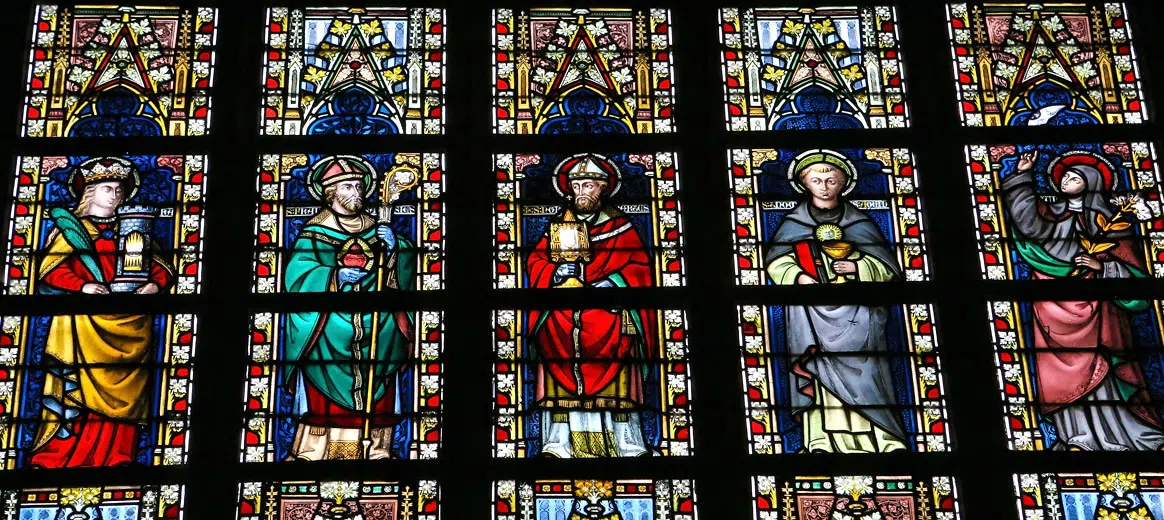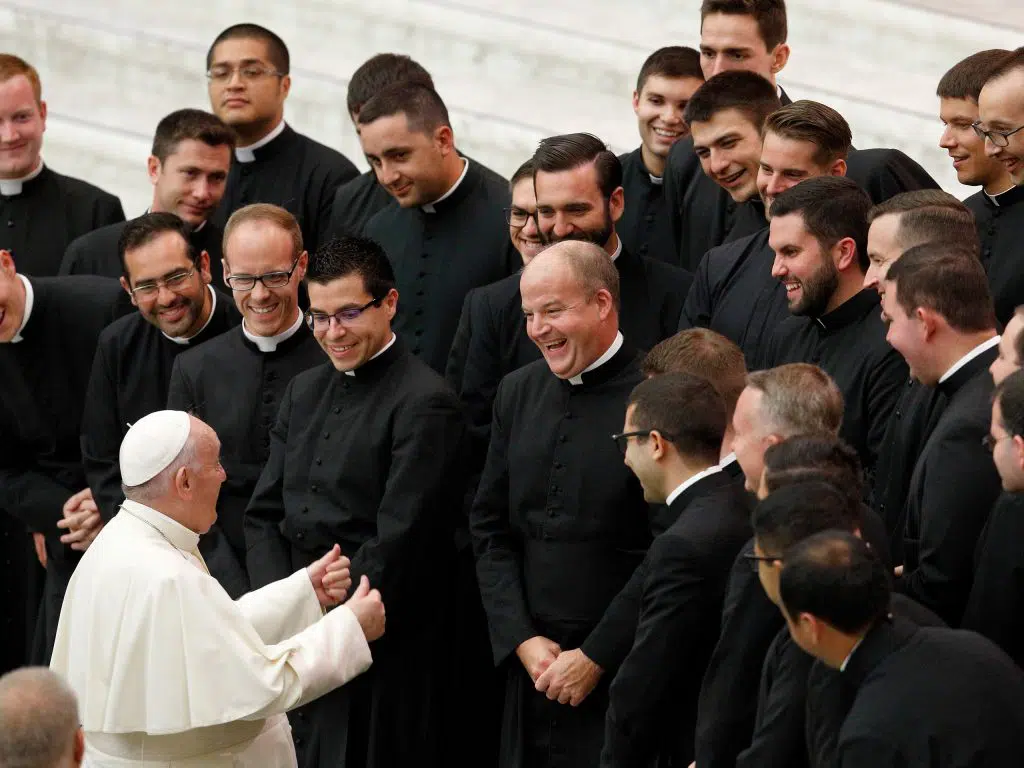St. Philip Howard (1557 – 1595)
Feast: Oct. 19
When Henry VIII broke with Rome and made himself supreme head of the Church in England, he put his subjects in a terrible position: How could they remain true to the Catholic faith and loyal to the king? It was a dilemma that took some families generations to work out, among them the aristocratic Howard family, whose head was then and still is today the Duke of Norfolk. Throughout the Tudor period, the Howards adjusted their consciences to fit the religious mood of the moment. No wonder Philip Howard grew up cynical and indifferent to religion.
Philip was a man without a moral compass, and nowhere was this sad fact more evident than in his marriage to Anne Dacre, daughter of another powerful family. He was cold to Anne, spent almost no time with her, and used to say openly that he was not certain if his was a true marriage or not.
Then in 1581, Philip Howard attended a spectacle at the Tower of London that pitted a panel of Protestant theologians against a single Jesuit priest, St. Edmund Campion. He was one of dozens of Catholic priests, who in violation of the law, slipped into the country to bring the Mass and the sacraments to the persecuted Catholics of England, and perhaps bring a few Anglicans back to the ancient faith of their ancestors. After a little over a year in England, Father Campion had been discovered, imprisoned in the Tower of London, and tortured repeatedly on the rack. Now he was compelled to participate in a public religious debate — without notes, books, or any type of assistance. In spite of these disadvantages, Father Campion defended the Catholic position so eloquently that the sympathies of the Protestant spectators shifted to the Jesuit priest. More importantly, Father Campion had, unbeknownst to him, awakened the conscience of Philip Howard.
First Philip reconciled with Anne, and they were received back into the Catholic Church. Next, they planned to leave the country for Europe where they could practice their newfound faith freely. But a rumor of the Howards’ plans was leaked to the authorities. It was forbidden for any English subject to leave the country without a passport from the government. By trying to slip out of England, Philip and Anne had committed a serious crime. The authorities left Anne alone, but Philip was imprisoned in the Tower where Queen Elizabeth I was content to let him serve a life sentence.
In the Tower, Philip atoned for his sins and vices. He divided each day into periods of study, exercise and prayer. He fasted three times a week. Since he was forbidden a crucifix, so he scratched one into the wall.
In August 1595, Philip fell ill with a serious case of dysentery. When it became obvious he was dying, he sent a message to Elizabeth, begging her permission to see a priest. She refused. He begged Elizabeth to let him see Anne and their son, or perhaps his brothers. All of these requests the queen also rejected. When Philip died only his servants and his jailers were at his bedside.
Not long before his death, Philip had sent Anne a letter. “It is no small grief unto me,” he wrote, “that I cannot make recompense in this world for the wrongs I have done you; for if it had pleased God to have granted me longer life, I doubt not but that you should have found me as good a husband … by his grace, as you have found me bad before.”
Thomas J. Craughwell is the author of This Saint Will Change Your Life.



Christ commands us to love